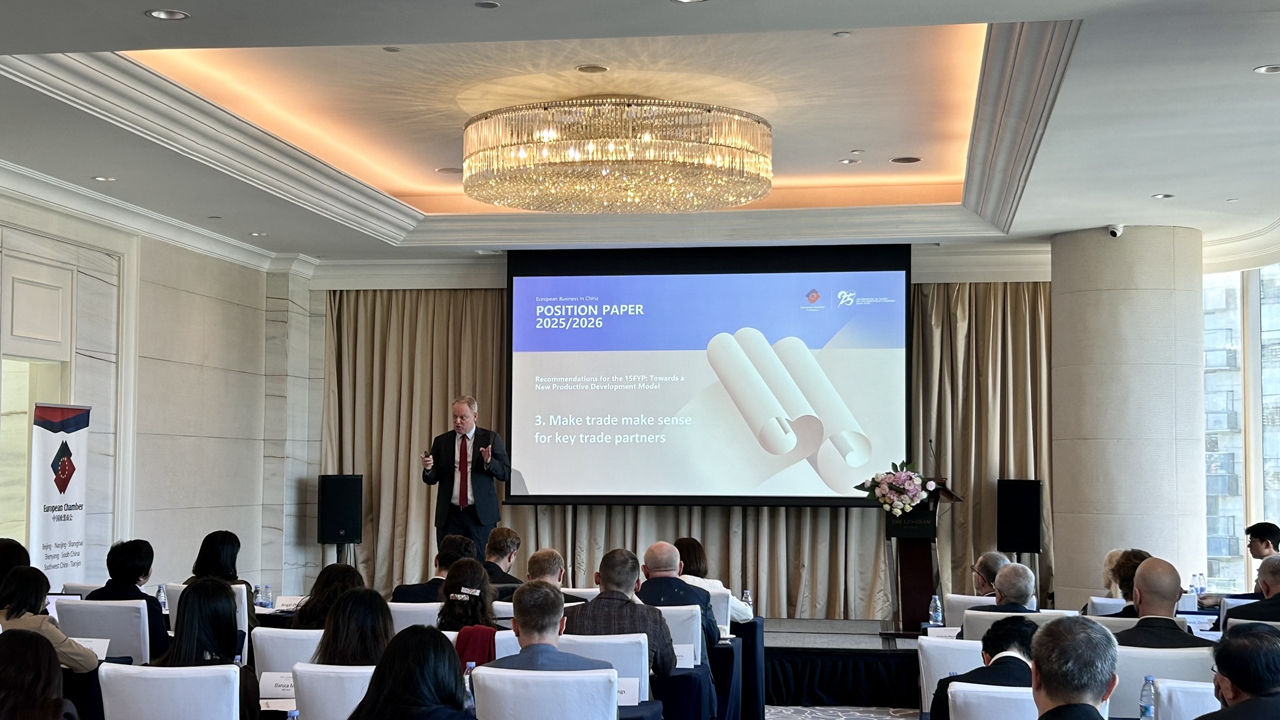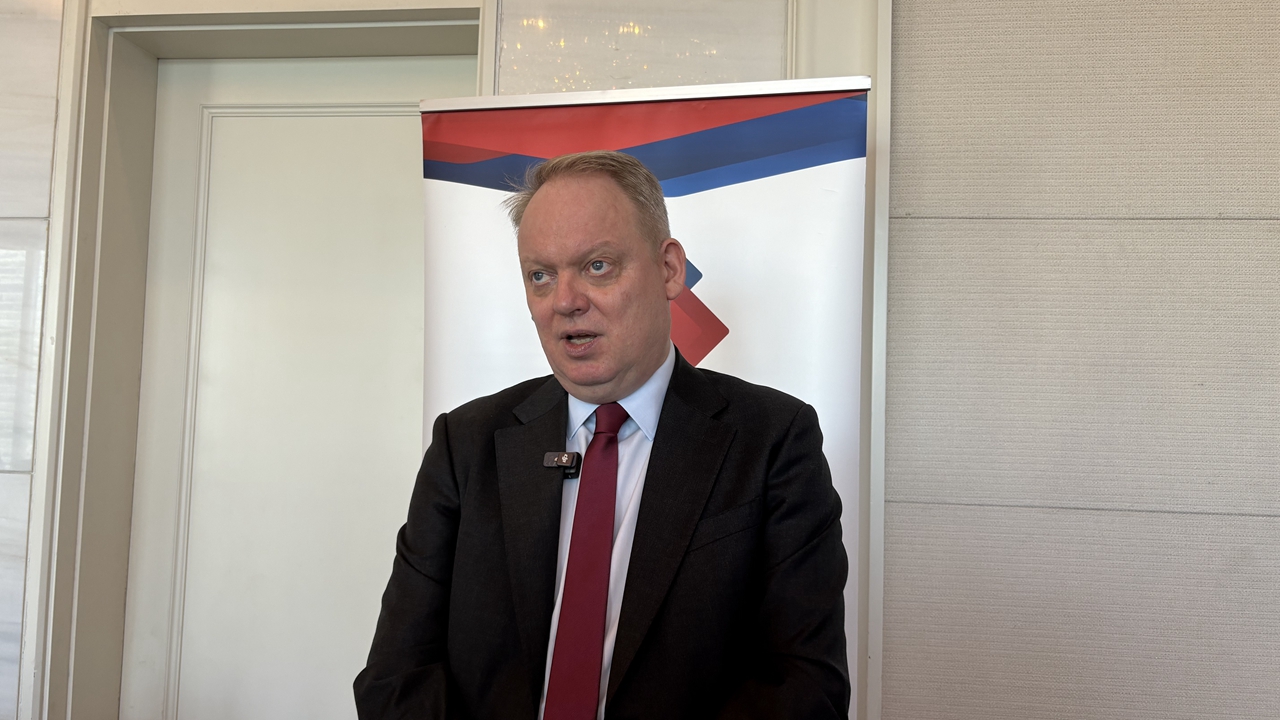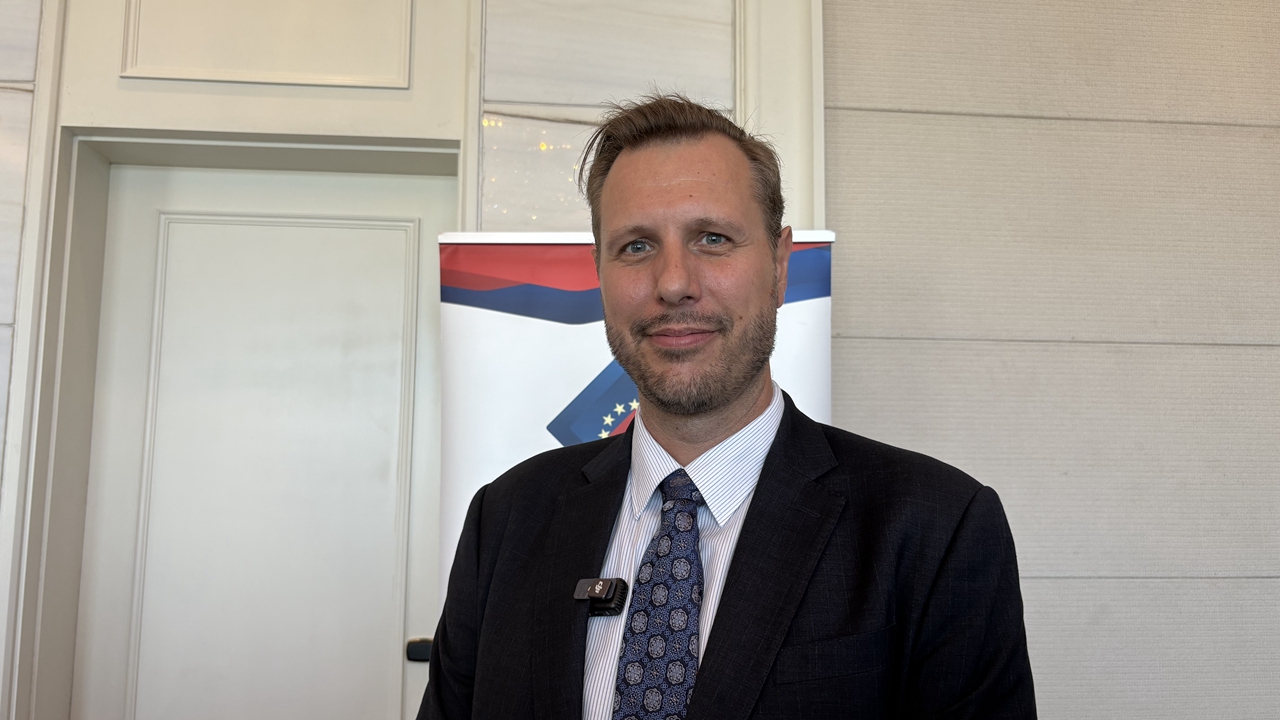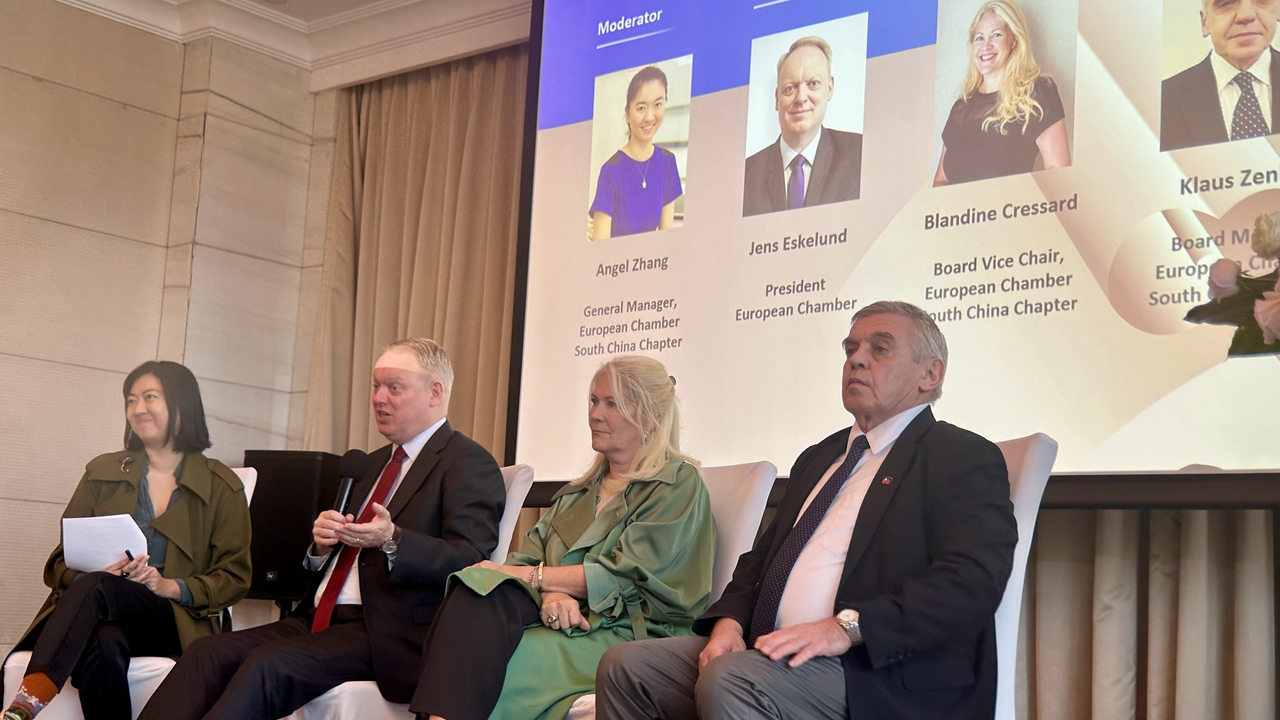EU businesses call for rebalancing, highlight opportunities in SZ
Writer: Zhang Yu | Editor: Lin Qiuying | From: Original | Updated: 2025-11-06
European business leaders urged a pragmatic approach to EU-China economic relations yesterday, emphasizing the need to address a “trust deficit” while identifying specific opportunities in innovation and the green transition, particularly in Shenzhen and the Guangdong-Hong Kong-Macao Greater Bay Area.
 Chamber President Jens Eskelund unveils the "European Business in China Position Paper 2025/2026" in Shenzhen yesterday. Photos courtesy of European Union Chamber of Commerce in China unless otherwise stated
Chamber President Jens Eskelund unveils the "European Business in China Position Paper 2025/2026" in Shenzhen yesterday. Photos courtesy of European Union Chamber of Commerce in China unless otherwise stated
The comments were made by senior officials from the European Union Chamber of Commerce in China during a conference in Shenzhen to release the "European Business in China Position Paper 2025/2026."
Chamber President Jens Eskelund highlighted the tension between economic interdependence and security concerns, noting that Europe’s energy crisis after relying on Russian gas has triggered a strategic rethink. He suggested a sector-specific approach — protecting strategic industries like wind turbines while remaining open to low-cost solar panel imports.
“This is also sort of a paradox,” Eskelund acknowledged, referencing the conflict between Europe’s free trade ideals and new security imperatives.

President of European Union Chamber of Commerce in China Jens Eskelund. Zhang Yu

The chamber's Vice President and South China Board Chair Fabian Blake. Zhang Yu
The cornerstone of the event was the new position paper, which the chamber’s Vice President and South China Board Chair Fabian Blake described as a comprehensive “wish list” from European companies. The document contains 1,141 specific recommendations distilled from 51 working groups.
Blake highlighted three key pillars of the paper — addressing the domestic imbalance between supply and demand, fostering an inclusive approach to digitalization, and promoting closer collaboration on the green transition.
“When it comes to innovation, I think Shenzhen is also a very good place to be,” Blake said, noting that significant investments by European members into R&D and innovation centers in the city are “testament that the added value chain that this local area can provide is getting higher and higher.”

European business representatives take part in a panel discussion during the event yesterday.
Both leaders identified the health of China’s domestic economy as the primary concern for their members. Eskelund drew a direct line from consumer confidence to business investment.
Looking ahead, Blake expressed optimism about Shenzhen’s role, especially with its upcoming hosting of the APEC meetings in 2026. He said the event underscores the city’s status as a linchpin for international cooperation.
“Having APEC actually hosted in this area is definitely a great opportunity,” Blake stated, “particularly for our multinational companies that are members of the European Chamber to further cement their investments in this area.”